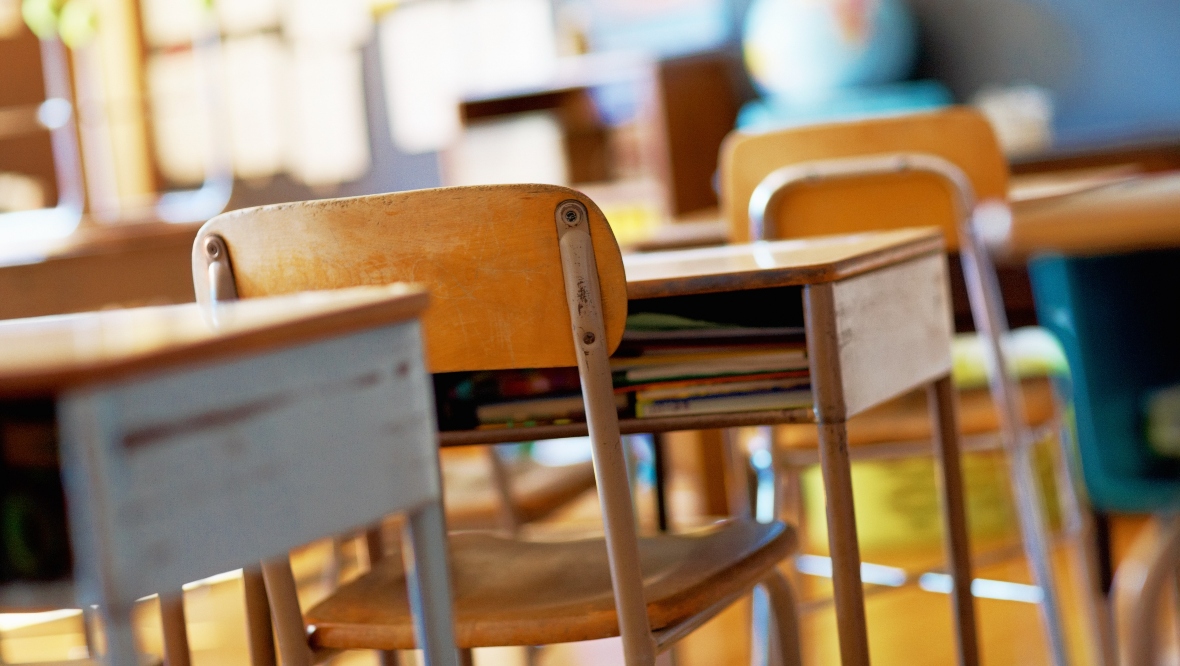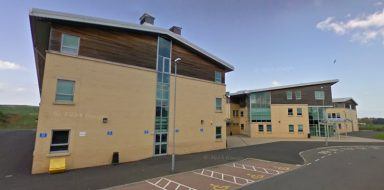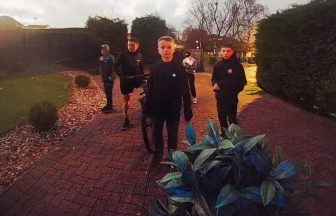The Scottish Government has urged schools to focus on “reinforcing positive behaviour” amid rising levels of violence and aggression in classrooms.
Education secretary Jenny Gilruth unveiled Holyrood’s highly anticipated guidance for schools and local authorities during a visit to St Brendan’s Primary School in Motherwell on Tuesday morning.
While the guidance focuses on “reinforcing positive behaviour” to tackle rising levels of violence and aggression in Scottish schools, it also leaves the option of temporary relocation and/or exclusion open.
In her foreword to the guidance, Education Secretary Jenny Gilruth said exclusion should only be used as a “last resort”.
It says exclusion can be used in response to violence or anti-social behaviour, saying this measure can “allow matters to calm, time for planning, meeting with parents etc”.
“It is clear from my extensive engagement with our school workforce that staff want more guidance to support their responses to young people’s behaviour. This guidance is a direct response to that ask,” Gilruth said.
“I want to be clear that staff have a range of consequences open to them. This ranges from classroom management approaches, to the use of exclusion as a last resort, where this approach is proportionate and there is no appropriate alternative.”
The guidance aims to provide clarity to schools on the ways they can “mitigate or minimise violent, aggressive, and dangerous behaviours exhibited by children and young people at school”.
Local authorities have been given a list of possible options in a bid to minimise disruption including late or “soft” starts to avoid busy times in social areas or corridors, check-ins throughout the day, seating plans and staff being attentive to known triggers like bullying or provoking.
Restricted access to items that could cause harm, extra support or supervision in lessons, staff escorts to or from school and between lessons and supervised social times are also suggested in the report.
“The least intrusive measures are often the most effective however, if the risk level is high, more restrictive measures may be necessary,” the guidance added.
These “more restrictive measures” could include restrictions around subjects or activities, an altered timetable and bag or clothing checks for items or substances that could cause harm.
“Higher-level mitigations, such as a reduced timetable, would only be considered after a thorough assessment of needs including risk and be part of a holistic plan,” the guidance said.
The Scottish Government acknowledged that there “may be instances” where a school cannot avoid or sufficiently reduce the risk to students and staff to an acceptable level with the resources available.
This is where temporary removal – or exclusion – would be appropriate, the guidance explains.
In these cases, the Scottish Government said: “The child, who is at risk or whose behaviour is causing a risk to others, may need to temporarily be relocated to a setting or learning environment where the risk can be reduced or avoided whilst also maintaining their right to education.”
The guidance said this should only happen “at the higher levels of staged intervention and may include a temporary managed move to an alternative location onsite, such as a support base, or an offsite specialist provision.”
However, the guidance was clear that the primary aim should always be to reintegrate the child into a mainstream classroom environment as soon as the risks can be managed.
It added young people need structure and boundaries to support their development and having predictable consequences helps them to feel safe.
“Responding to behaviour in our schools requires all members of the school community – staff, children and young people and parents and carers – to work together to identify the values that underpin school life, how this translates into expectations of behaviour, and to support appropriate responses,” Gilruth said.
“We want to create a strong partnership between home and school to help create a consistent, supportive environment where children feel safe, respected, and are better able to learn and thrive.”
Follow STV News on WhatsApp
Scan the QR code on your mobile device for all the latest news from around the country





























